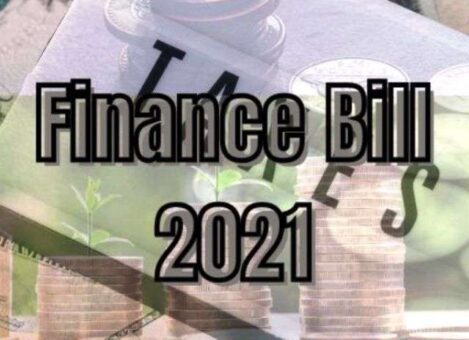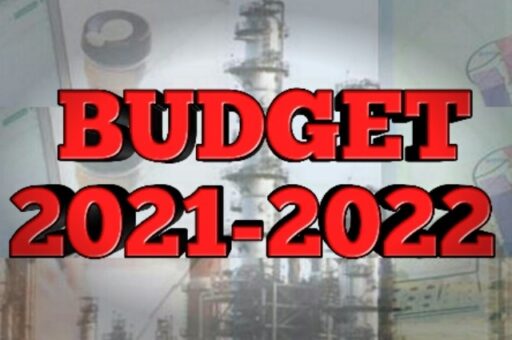ISLAMABAD: A bunch of income tax exemptions and concessions has been proposed through Finance Bill, 2021, which will be implemented from July 01, 2021.
According to commentary on budget 2021/2022 by PwC A. F. Ferguson & Co. Chartered Accountants, the following exemptions and concessions have been withdrawn through Finance Bill, 2021:
Salary income of the Pakistani seafarer:
(a) working on Pakistan flag vessel for 183 days or more during a tax year; or
(b) working on a foreign flag vessel provided that such income is remitted to Pakistan not later than two months of the relevant tax year through normal banking channel.
Any special allowance or benefit (not being entertainment or conveyance allowance) or other perquisite within the meaning of section 12 specially granted to meet expenses wholly and necessarily incurred in the performance of the duties of an office or employment of profit.
Any income of a newspaper employee representing Local Travelling Allowance paid in accordance with the decision of the Third Wage Board for Newspaper Employees constituted under the Newspaper Employees (Conditions of Service) Act, 1973, published in Part II of the Gazette of Pakistan, Extraordinary, dated the 28th June, 1980.
The following perquisites received by an employee by virtue of his employment, namely:-
(i) free or subsidized food provided by hotels and restaurants to its employees during duty hours;
(ii) free or subsidized education provided by an educational institution to the children of its employees;
(iii) free or subsidized medical treatment provided by a hospital or a clinic to its employees; and
(iv) any other perquisite or benefit for which the employer does not have to bear any marginal cost, as notified by the Board.
Any profit on debt payable to a nonresident person-
(i) in respect of such private loan to be utilized on such project in Pakistan as may be approved by the Federal Government for the purposes of this clause, having regard to the rate of profit and the terms of repayment of the loan and the nature of project on which it is to be utilized;
(ii) on a loan in foreign exchange against export LC credit which is used exclusively for export of goods manufactured or processed for exports in Pakistan
(iii) being a foreign individual, company, firm or association of persons in respect of a foreign loan as is utilized for industrial investment in Pakistan provided that the agreement for such loan is concluded on or after the first day of February, 1991, and is duly registered with the State Bank of Pakistan:
Provided that this clause shall have retrospective effect of exemption to the agreements entered into in the past and shall not be applicable to new contracts after the 30th day of June, 2010, prospectively.
Any income derived from a private foreign currency account held with an authorised bank in Pakistan, or certificate of investment issued by investment banks in accordance with the Foreign Currency Accounts Scheme introduced by the State Bank of Pakistan, by a resident individual who is a citizen of Pakistan:
Provided that the exemption under this clause shall not be available in respect of any incremental deposits made in the said accounts on or after the 16th day of December, 1999, or in respect of any accounts opened under the said scheme on or after the said date.
Any distribution received by a taxpayer from a collective investment scheme registered by the Securities and Exchange Commission of Pakistan under the Non-Banking Finance Companies and Notified Entities Regulations, 2007, including National Investment (Unit) Trust or REIT Scheme or a Private Equity and Venture Capital Fund out of the capital gains of the said Schemes or Trust or Fund :
Any income chargeable under the head “capital gains” derived by a resident individual from the sale of constructed residential property: Provided that exemption under this clause shall only apply, if
(a) at the time of sale, the residential property was being used for the purpose of personal accommodation by the resident individual, his spouse or dependents and for which any of the utility bills is issued in the name of such individual;
(b) the land area of the property does not exceed 500 square yards in case of a house and 4000 square feet in case of a flat; and
(c) exemption under this clause has not previously been availed by the individual, his spouse or dependents.
Any income derived by a person from plying of any vehicle registered in the territories of Azad Jammu and Kashmir, excluding income arising from the operation of such vehicle in Pakistan to a person who is resident in Pakistan and non-resident in those territories.
Profit and gains derived by a taxpayer from an industrial undertaking set up in Larkano Industrial Estate between the 1st day of July, 2008 and the thirtieth day of June, 2013, both days inclusive, for a period of ten years beginning with the month in which the industrial undertaking is set up or commercial production commenced, whichever is the later.
Exemption under this clause shall apply to an industrial undertaking which is owned and managed by a company registered under the Companies Ordinance 1984 (XLVII of 1984) and formed exclusively for operating the said undertaking.
Profit and gains derived by a taxpayer, from a fruit processing or preservation unit set up in Balochistan Province, Malakand Division, Gilgit Baltistan and FATA between the first day of July, 2014 to the thirtieth day of June, 2017, both days inclusive, engaged in processing of locally grown fruits for a period of five years beginning with the month in which the industrial undertaking is set up or commercial production is commenced, whichever is later.
Profit and gains derived by a taxpayer, from an industrial undertaking set up between 1st day of July, 2015 and 30th day of June, 2016 engaged in operating warehousing or cold chain facilities for storage of agriculture produce for a period of three years beginning with the month in which the industrial undertaking is set up or commercial operations are commenced, whichever is later.
Profit and gains derived by a taxpayer, from an industrial undertaking set up between the first day of July, 2015 and the 30th day of June, 2017 for establishing and operating a halal meat production unit, for a period of four years beginning with the month in which the industrial undertaking commences commercial production.
The exemption under this clause shall apply if the industrial undertaking is –
(a) owned and managed by a company formed for operating the said halal meat production unit and registered under the Companies Ordinance, 1984 (XLVII of 1984), and having its registered office in Pakistan;
(b) not formed by the splitting up, or the re construction or reconstitution, of a business already in existence or by transfer to a new business of any machinery or plant used in a business which was being carried on in Pakistan at any time before the commencement of new business; and
(c) halal meat production unit is established and obtains a halal certification within the period between the first day of July, 2015 and the 30th day of June, 2017.
Profit and gains derived by a taxpayer, from industrial undertaking set up in Khyber Pukhtunkhwa and Baluchistan between 1st day of July, 2015and 30th day of June, 2018 for a period of five years beginning with the month in which industrial undertaking is set up or commercial production is commenced, whichever is later:
Provided that exemption under this clause shall be admissible where—
(a) the industrial undertaking is setup between the first day of July, 2015 and 30th day of June, 2018, both days inclusive; and
(b) the industrial undertaking is not established by the splitting up or reconstruction or reconstitution of an undertaking already inexistence or by transfer of machinery or plant from an undertaking established in Pakistan at any time before 1st July 2015.
Profit and gains derived by a taxpayer from an industrial undertaking, duly certified by the Pakistan Telecommunication Authority, engaged in the manufacturing of cellular mobile phones, for a period of five years, from the month of commencement of commercial production:
Provided that the industrial undertaking has been setup and commercial production has commenced between the first day of July, 2015 and the thirtieth day of June, 2017 and the industrial undertaking is not formed by the splitting up, or the reconstruction or reconstitution, of a business already inexistence or by transfer to a new business of any machinery or plant used in a business which was being carried on in Pakistan.
The benefit represented by free provision to the employee of medical treatment or hospitalization or both by an employer or the reimbursement received by the employee of the medical charges or hospital charges or both paid by him, where such provision or reimbursement is in accordance with the terms of employment:
Provided that National Tax Number of the hospital or clinic, as the case may be, is given and the employer also certifies and attests the medical or hospital bills to which this clause applies;
(b) any medical allowance received by an employee not exceeding ten per cent of the basic salary of the employee if free medical treatment or hospitalization or reimbursement of medical or hospitalization charges is not provided for in the terms of employment.
The withdrawal of this exemption needs to be reconsidered.
The following perquisites received by an employee by virtue of his employment, namely:-
(i) free or subsidized food provided by hotels and restaurants to its employees during duty hours;
(ii) free or subsidized education provided by an educational institution to the children of its employees;
(iii) free or subsidized medical treatment provided by a hospital or a clinic to its employees; and
(iv) any other perquisite or benefit for which the employer does not have to bear any marginal cost, as notified by the Board.



